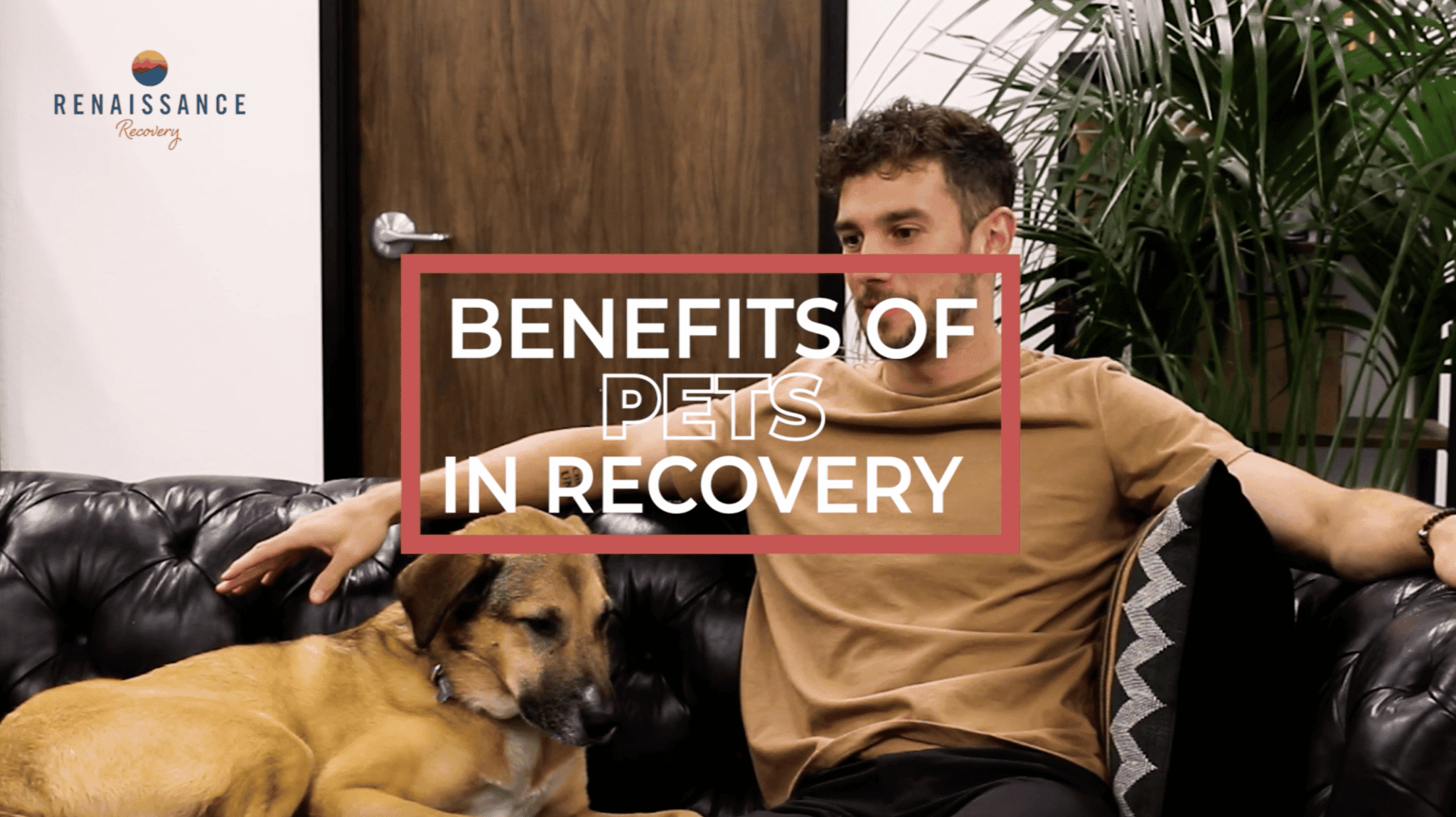Key Takeaways
- Pets provide unwavering emotional support during addiction recovery, helping to reduce feelings of loneliness and anxiety.
- Having a pet can establish a daily routine, which is crucial for maintaining stability and discipline in recovery.
- Caring for a pet encourages physical activity, improving both physical and mental health.
- Pets require responsibility and accountability, aiding in personal growth and self-discipline.
- The bond formed with a pet can significantly boost one’s confidence and self-worth during the recovery process.
The Transformative Journey: Life After Addiction with Pets
Life after addiction is a journey, a transformation that unfolds gradually. For many, this path is made brighter and more manageable with the companionship of a pet. Pets have a unique way of offering unconditional love and support, providing a sense of purpose and routine that is often crucial during recovery. They become a part of your daily life, encouraging you to step outside, engage with the world, and establish a new rhythm.
“Pet friendly Rehab & Sober Living …” from www.renaissancerecovery.com and used with no modifications.
Getting a Fresh Perspective with Your Pet
One of the most profound changes that occur when you have a pet during recovery is the shift in perspective. Instead of focusing solely on your struggles, a pet encourages you to think about their needs. This shift can be incredibly grounding. Imagine waking up each morning to a wagging tail or a gentle purr. It’s a reminder that you are needed and loved, just as you are.
The Role Pets Play in Emotional Support
Pets are known for their ability to provide emotional support. During recovery, this support is invaluable. They are there when you feel alone, offering comfort and companionship. This connection can significantly reduce feelings of anxiety and depression, which are common during recovery. It’s not just about having a pet around; it’s about the bond you form and the mutual understanding that develops.
Pets as Supportive Companions in Recovery
During recovery, having a supportive companion can make all the difference. Pets fill this role perfectly. They are non-judgmental, loyal, and always ready to offer a listening ear—or rather, a listening paw. Their presence alone can be a soothing balm to the soul, providing comfort during challenging times.
In my experience, I’ve seen how pets can transform lives. They offer a sense of security and stability, which is often lacking during recovery. When you have a pet, you have a reason to get up in the morning, to go for a walk, to engage with the world outside. These small actions can lead to significant improvements in mental health and well-being.
Unconditional Love from Your Pet
One of the most beautiful aspects of having a pet is the unconditional love they offer. Unlike humans, pets don’t judge or hold grudges. They love you for who you are, not who you were or who you’re trying to become. This kind of love can be incredibly healing, especially for someone in recovery. It helps rebuild self-esteem and confidence, reminding you that you are worthy of love and care.
Consider this: a dog wagging its tail enthusiastically every time you walk through the door. Or a cat curling up on your lap, purring contentedly. These simple acts of affection can have a profound impact on your emotional state, lifting your spirits and reinforcing your commitment to recovery.
Building a Strong Bond with Your Pet
Building a bond with your pet is an ongoing process that requires time and effort. However, the rewards are immeasurable. This bond provides a sense of belonging and connection, which is essential for anyone in recovery. It’s about understanding each other’s needs and supporting one another through the ups and downs of life.
To strengthen this bond, spend quality time with your pet. Engage in activities they enjoy, whether it’s playing fetch, going for a walk, or simply sitting together. These moments not only deepen your connection but also provide a healthy distraction from the challenges of recovery.
Building Routine and Responsibility with Pets
One of the key components of successful recovery is establishing a routine. Pets naturally help with this. They thrive on routine and, in turn, encourage you to establish one. From feeding schedules to regular walks, caring for a pet introduces structure into your day-to-day life. For more insights on how pets can support your recovery journey, check out why owning a pet is helpful in recovery.
Daily Care Tasks
Daily care tasks are a fundamental part of pet ownership. These tasks require consistency and commitment, which are crucial qualities in recovery. Feeding your pet at the same time each day, ensuring they have fresh water, and maintaining their grooming needs all contribute to a sense of responsibility and accountability.
By taking care of these tasks, you not only ensure your pet’s well-being but also reinforce your own discipline and reliability. These skills are transferable to other areas of your life, aiding in your overall recovery journey.
Establishing a Routine
Establishing a routine with your pet is about more than just scheduling; it’s about creating a predictable and stable environment. This stability can be incredibly comforting during recovery, providing a sense of control and order in your life.
Start by setting specific times for meals, walks, and play. Stick to these times as closely as possible. Over time, this routine will become second nature, helping you build the consistency needed for a successful recovery.
Accountability Through Pet Care
Owning a pet during recovery fosters a sense of accountability. Every day, you are responsible for another life, which can help reinforce your commitment to sobriety. This accountability is not only about feeding or grooming your pet but also about ensuring their overall well-being.
Imagine this: you wake up knowing your dog needs a walk, or your cat needs its litter box cleaned. These responsibilities might seem small, but they require you to be present and attentive. By fulfilling these duties, you develop a routine that helps keep your mind focused and clear. This daily commitment to your pet’s care can significantly boost your self-discipline and reliability, qualities that are essential in the recovery process.
Physical and Mental Benefits of Pet Ownership
Having a pet brings numerous physical and mental benefits, which can be especially beneficial during recovery. Pets encourage us to be more active and help improve our mental well-being through companionship and affection.
Encouraging Physical Activity
Pets, particularly dogs, require regular exercise, which naturally encourages their owners to stay active. Whether it’s a morning walk or a game of fetch in the park, these activities promote physical health. They help improve cardiovascular health, strengthen muscles, and boost overall energy levels.
Boosting Mental Well-being
Beyond physical benefits, pets also contribute to mental well-being. The simple act of petting a dog or cat can release endorphins, the body’s natural feel-good chemicals. This can reduce stress, anxiety, and even symptoms of depression.
Moreover, the companionship of a pet can alleviate loneliness and provide emotional support. Knowing that your pet is always there for you, offering unconditional love and acceptance, can be a powerful motivator in maintaining a positive outlook on life.
Understanding and Meeting Your Pet’s Needs
To ensure your pet thrives, it’s essential to understand and meet their needs. This involves more than just providing food and water; it includes meeting their emotional and physical requirements as well.
Understanding these needs can also deepen the bond between you and your pet, creating a more fulfilling and rewarding relationship.
Feeding and Nutrition
Proper nutrition is vital for your pet’s health. Ensure you’re providing a balanced diet suitable for their age, size, and breed. Consult your veterinarian for advice on the best food options and portion sizes.
Regular Exercise and Playtime
Just like humans, pets need regular exercise to stay healthy. Make time for daily walks, play sessions, or other activities that your pet enjoys. This not only keeps them physically fit but also helps prevent behavioral issues that can arise from boredom or excess energy.
Example: A simple game of fetch with your dog can provide both physical exercise and mental stimulation, strengthening your bond and keeping them happy and healthy.
Engaging in these activities also provides you with a chance to unwind and enjoy the moment, further enhancing your mental well-being. For more insights on how pets can aid in this process, explore why owning a pet is helpful in recovery.
Veterinary Care Basics
Regular veterinary check-ups are crucial for keeping your pet healthy. Schedule annual exams and vaccinations, and stay vigilant for any signs of illness or discomfort. Early detection of health issues can lead to more effective treatments and a better quality of life for your pet.
Additionally, maintaining your pet’s dental health, grooming, and parasite prevention are essential aspects of their overall care. By staying on top of these responsibilities, you ensure your pet’s well-being and demonstrate your commitment to their care.
Practical Tips for Pet Care in Recovery
Caring for a pet while in recovery can be challenging, but with the right strategies, it can also be incredibly rewarding. Here are some practical tips to help you balance pet care with your recovery journey.
Creating a Pet-Friendly Environment
Start by ensuring your home is a safe and comfortable space for your pet. Remove any hazards, such as toxic plants or small objects they could swallow. Provide them with a cozy bed, toys for entertainment, and a designated area for meals.
By creating a pet-friendly environment, you not only enhance your pet’s quality of life but also create a space that supports your own recovery by reducing stress and promoting a sense of calm. Learn more about why owning a pet is helpful in recovery.
Time Management: Balancing Recovery and Pet Care
Balancing recovery and pet care can seem daunting at first, but with effective time management, it becomes manageable and rewarding. Start by creating a daily schedule that includes time for your recovery activities, such as therapy sessions or support group meetings, alongside your pet care responsibilities.
Prioritize your tasks and be realistic about what you can accomplish each day. Remember, it’s important to make time for both yourself and your pet, ensuring neither is neglected. This balance is crucial for maintaining a healthy recovery journey.
Leveraging Support Systems for Pet Care
It’s essential to utilize support systems to help manage pet care during recovery. Reach out to friends, family, or local pet care services if you need assistance. They can provide support when you’re overwhelmed or unable to fulfill your pet’s needs.
Building a network of reliable helpers can ease the pressure and allow you to focus on your recovery. Don’t hesitate to ask for help when needed; it’s a sign of strength, not weakness.
Example: If you have a close friend who loves animals, ask them to take your dog for a walk when you’re attending a recovery meeting. This ensures your pet gets the exercise they need while you focus on your recovery.
By leveraging these support systems, you create a more balanced and sustainable lifestyle for both you and your pet.
Long-Term Bonding and Healing with Your Pet
The bond you form with your pet during recovery can be a source of ongoing healing and growth. This relationship offers companionship, love, and support, all of which contribute to a healthier, happier life post-addiction.
Over time, you’ll find that your pet becomes a vital part of your journey, helping you navigate challenges and celebrate successes along the way.
Ongoing Relationship Building
Building a strong relationship with your pet requires ongoing effort and dedication. Spend quality time with them, engage in activities they enjoy, and be attentive to their needs. This not only strengthens your bond but also enhances your mutual understanding and trust.
As you continue to nurture this relationship, you’ll discover the joy and fulfillment that comes from having a loyal and loving companion by your side.
Recognizing and Celebrating Milestones
As you progress in your recovery journey, it’s important to recognize and celebrate milestones, both big and small. Include your pet in these celebrations, as they have played a significant role in your success.
Whether it’s a simple outing to the park or a special treat, acknowledging these achievements reinforces the positive impact your pet has on your life and strengthens your commitment to recovery.
Frequently Asked Questions (FAQ)
Below are some common questions about the role of pets in addiction recovery and how to manage pet care effectively during this time.
How do pets help during addiction recovery?
Pets provide emotional support, companionship, and a sense of responsibility, all of which are crucial for maintaining sobriety. Their unconditional love and loyalty offer comfort during challenging times, making them invaluable partners in recovery.
What are the responsibilities of owning a pet in recovery?
Owning a pet involves daily care tasks such as feeding, grooming, and exercising, as well as regular veterinary visits. These responsibilities require commitment and consistency, which can aid in developing discipline and accountability during recovery.
Additionally, pet owners must ensure their pets’ emotional well-being by providing love, attention, and a safe environment.
Can a pet really improve emotional well-being?
Yes, pets can significantly enhance emotional well-being. The companionship and affection they offer can reduce stress, anxiety, and depression. Interacting with pets also releases endorphins, which improve mood and promote relaxation.
What should I do if I struggle to care for my pet during recovery and sober living?
If you’re struggling to care for your pet, seek support from friends, family, or local pet care services. They can assist with tasks like walking, feeding, or providing temporary care, allowing you to focus on your recovery.
It’s important to prioritize both your well-being and your pet’s needs. By building a support network, you can ensure that your pet receives the care they deserve while you work towards a healthier, happier life.







